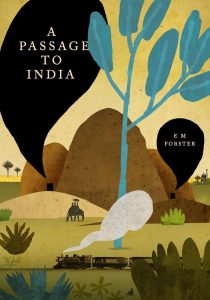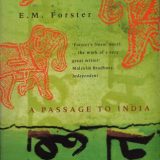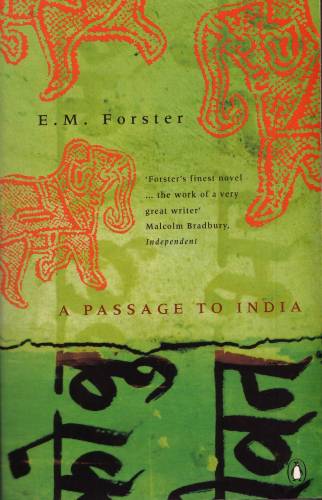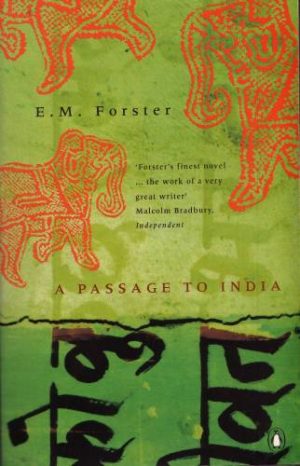A Passage to India – E.M. Forster – 1924
Reviewed by: Vivek Kant Date: 10 November 2004
 Forster represented the Indian & the English outlooks towards each other perfectly & at the same time he brings out the characters in a manner that is just apt, based on the circumstances rocking the Indian subcontienent at that time. The story further proves that there are good people among the bad and bad among the good even if they may be just a handful (this serves to be on a wider scale). Since the book represents not just a small town, but a miniature of India in the colonial age. The intrigue about what happened in the cave is maintained throughout but becomes very irritating towards the end. The way Forster has moulded the characters is indeed commendable. The expression of the general sentiment of the Indians about the British can be fully appreciated by one who has had a colonial upbringing.
Forster represented the Indian & the English outlooks towards each other perfectly & at the same time he brings out the characters in a manner that is just apt, based on the circumstances rocking the Indian subcontienent at that time. The story further proves that there are good people among the bad and bad among the good even if they may be just a handful (this serves to be on a wider scale). Since the book represents not just a small town, but a miniature of India in the colonial age. The intrigue about what happened in the cave is maintained throughout but becomes very irritating towards the end. The way Forster has moulded the characters is indeed commendable. The expression of the general sentiment of the Indians about the British can be fully appreciated by one who has had a colonial upbringing.
~
Reviewed by: Pete C. Date: 13 July 2003
To me, this was a disappointing novel. I thought that I would enjoy the foreign atmosphere of the story, but it was too much for me, particularly the discussions of eastern spirituality. Yet, this was not the only aspect of the book that I disliked: the plot was weak, and I couldn’t attach myself to any character–all the characters were too vague.
 The cast of characters was just about evenly divided between native Indians (India) and British men and women living in India. The differences between these two cultures represents the most important element in this book–it leads to misunderstandings and the consequences of prejudice. There are instances in the story when British and Indian characters are attempting to understand each other’s cultural and social beliefs without bias. But there are many more instances when the people make it clear that they do not care about the other’s culture because they have no doubt of their own superiority. I think Forster was trying to make a general statement about Eurpoean colonialism: occasionally, genuine understanding was sought, but most often prejudice determined the thoughts and actions of Europeans in foreign countries. That’s a good point, but, in this novel, Forster doesn’t present it well.
The cast of characters was just about evenly divided between native Indians (India) and British men and women living in India. The differences between these two cultures represents the most important element in this book–it leads to misunderstandings and the consequences of prejudice. There are instances in the story when British and Indian characters are attempting to understand each other’s cultural and social beliefs without bias. But there are many more instances when the people make it clear that they do not care about the other’s culture because they have no doubt of their own superiority. I think Forster was trying to make a general statement about Eurpoean colonialism: occasionally, genuine understanding was sought, but most often prejudice determined the thoughts and actions of Europeans in foreign countries. That’s a good point, but, in this novel, Forster doesn’t present it well.
I’ve heard many good things about this book, but I have to disagree with them and suggest skipping over this one.
















